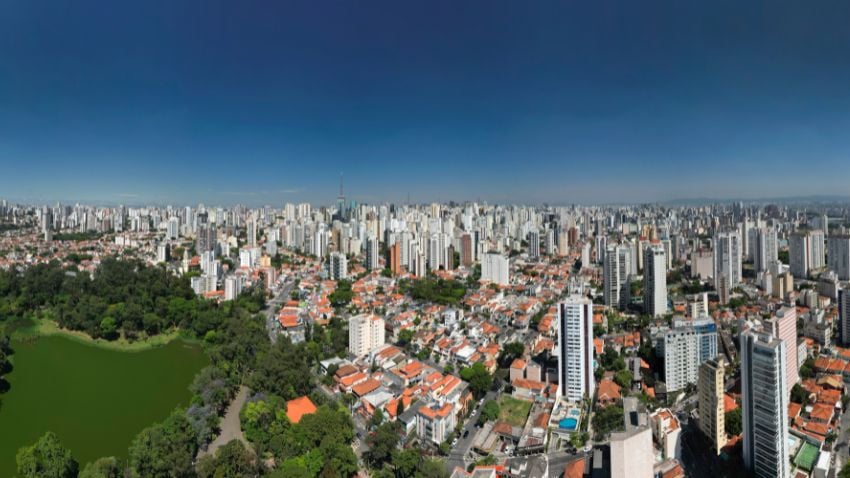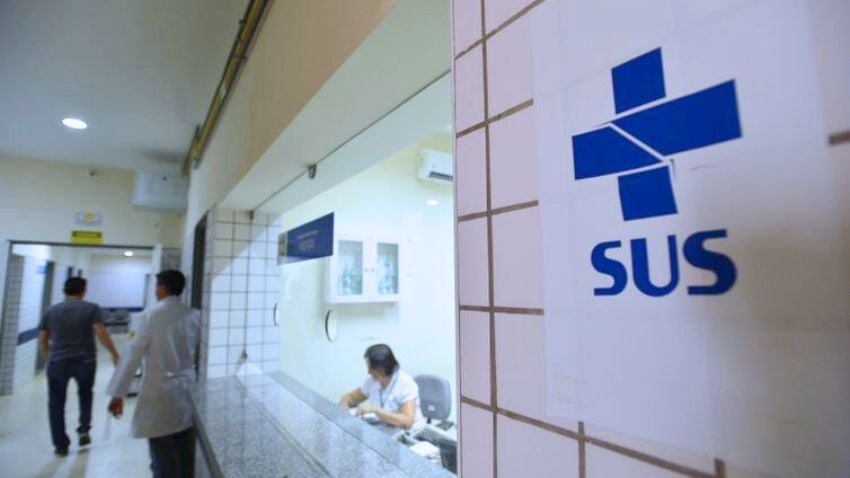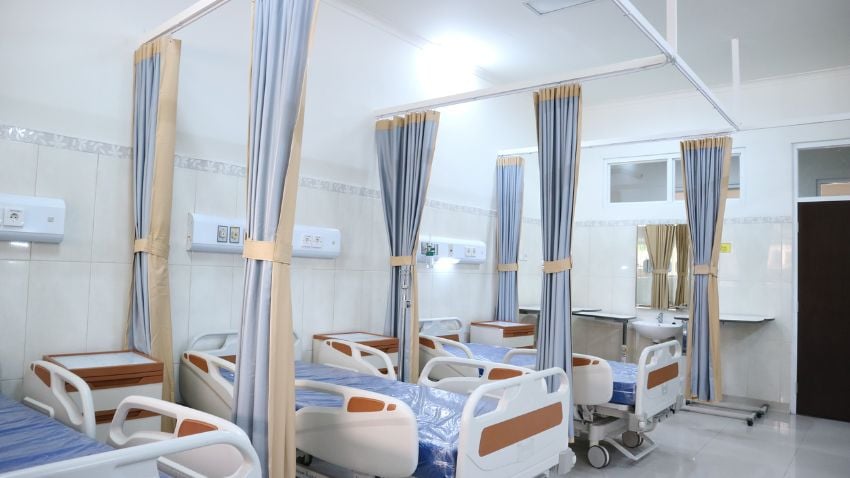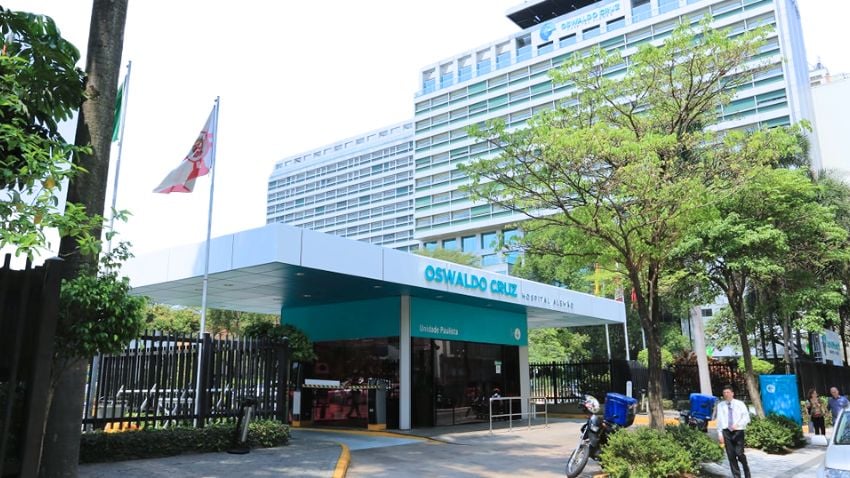Best Cities To Live In Mexico In 2026
Mexico remains one of Latin America’s most compelling destinations, especially for North Americans. More than a million expats call it home, and tens...

5 min read
Brazil, with its vibrant culture, diverse landscapes, and warm people, presents an alluring prospect for expats seeking a new adventure or a change of scenery. But whether you are just passing through as a tourist or planning to settle in Brazil as an expat, understanding the healthcare system in Brazil is crucial.
In this article, we'll explore the nuances of healthcare in Brazil, the costs associated with medical care, insurance options, and accessing specialist services.

SUS - the public healthcare system in Brazil
Public healthcare in Brazil, provided through the Sistema Único de Saúde (SUS), aims to offer universal access to healthcare, but expats may face challenges related to accessibility, quality, and bureaucracy. Expats can be treated in emergencies, but only if they are residents of the country they can make an appointment with the SUS; even then, it can take time and worsen their health condition. Many Brazilians use the SUS as their only alternative, as they do not have the money to pay for private health insurance.
Even though there is no consensus, there is jurisprudence, that is, a legal history that guarantees and supports foreigners who need to use the SUS, whether through decrees, decisions of the Federal Supreme Court or even violations contained in the Brazilian Penal Code.
According to Decree no. 18.956/29, for example, which made official the conventions of International Law approved by the Sixth American International Conference of which Brazil was part, grants individual guarantees to foreigners domiciled or passing through while they are in national territory.

Private healthcare in Brazil offers expats top-notch medical care. With its modern facilities, cutting-edge technology, and highly skilled staff, these hospitals meet international standards, ensuring expats feel confident and safe in their healthcare choices.
For expats seeking higher quality care, shorter wait times, and English-speaking medical professionals, private healthcare, especially in Brazil, emerges as the preferred option, offering a wide range of services from routine check-ups to specialized treatments to cater to the diverse needs of expat communities. Private healthcare facilities in Brazil are renowned for their modern amenities, advanced medical technology, and highly skilled healthcare professionals, many adhering to international standards of care, providing expats with confidence in the quality and safety of medical services. Moreover, expats may benefit from personalized attention, shorter waiting times for appointments, and access to a network of specialist physicians and surgeons, enhancing the overall healthcare experience.
Additionally, the accessibility and convenience of private healthcare in Brazil are significant advantages. Expats can schedule appointments promptly, choose preferred healthcare providers, and access a wide range of medical specialties without enduring long waiting times. Private hospitals often offer amenities such as private rooms, bilingual staff, and concierge services to further enhance the patient experience for expats and their families.
.
In the private sector, medical consultations in clinics and hospitals come with varying fees, with additional charges for specialist referrals and tests. Expats would be wise to secure private health insurance for comprehensive coverage, as they may not be eligible for subsidized care through the public system without legal residency or citizenship.
The private sector offers a wide range of specialist consultations, including cardiology and neurosurgery, albeit at additional costs ranging from $50 to $350 USD or more per visit. Additionally, private hospitals in Brazil provide modern facilities and personalized care, offering expats timely treatment for elective procedures. Costs vary based on the procedure type and accommodation, typically ranging from $1,000 to $10,000 USD or more.
Related content: Is Brazil A Good Destination For Expats?

Hospital Alemão Oswaldo Cruz, São Paulo
Brazil has many excellent hospitals. Among the 58 best hospitals in Latin America, 16 are Brazilian. Also, 6 Brazilian hospitals are also among the best in the world, according to Newsweek. Here is the list:
The institution is a reference in the specialties of cardiology, cardiac surgery, endocrinology, gastroenterology, neurosurgery, neurology, oncology, orthopedics, pediatrics and urology. Einstein was considered the 28th best hospital in the world by The World's Best Hospitals 2024, a list released by the North American magazine Newsweek. The hospital, which rose six positions compared to the previous year, is the best in the Southern Hemisphere and Latin America. This recognition is the result of a trajectory of excellence, innovation, production of knowledge and commitment to quality and safety in healthcare.
The main unit, in the Bela Vista neighbourhood, has an emergency room and a surgical center, as well as diagnostic, oncology, cardiology, immunization, infusion and rehabilitation centers. The excellence of Sírio-Libanês is the result of 100 years of experience. Since the hospital's inauguration in 1965, a high-tech structure with specialized teams, investment in teaching and research and several pioneering and innovative initiatives have strengthened the institution every year for the best diagnosis, treatment, health promotion and quality of life.
The Hospital Moinhos de Vento has been affiliated with Johns Hopkins Medicine International since 2013, whose hospital is the fourth best on the planet in the Newsweek ranking.
Patient-centred care and value based on clinical outcomes are some of the premises that have guided the work of Hospital Moinhos de Vento since its inauguration on October 2, 1927. Today, our values, medical, care and management practices go beyond borders, being a national and international reference.
Efforts are reflected in achievements:
Third best hospital in Brazil and the only one in the southern region in the ranking of the best hospitals in Latin America;
In the years 2002, 2005, 2008, 2011, 2014, 2017, 2020 and 2023, it achieved and maintained Joint Commission International (JCI) Accreditation;
It is the only hospital in Rio Grande do Sul that has ISO 9001 certification simultaneously with JCI international accreditation;
It is among the six Hospitals of Excellence in the country – the only one in the South region – recognized by the Ministry of Health;
Hospital Alemão Oswaldo Cruz is a reference in robotic surgery and new technologies for cancer treatment in the country.
Since 2009, Hospital Alemão Oswaldo Cruz has been certified by the International Joint Commission (JCI), the most important in the area of Health. It is an international quality measurement system for comparative tests, strategies and best practices to reduce risk, tactics to reduce adverse events and the development of programs to improve the safety and quality of services aimed at patients. This attests that the Institution's operations are aligned with standards of excellence and reference practices in the global hospital segment.
The Institution was the winner of the Latin American Award for Excellence in Hand Hygiene 2015-2016, carried out by Aesculap Academia in partnership with the World Health Organization (WHO). It competed in two categories: implementation of the multimodal hand hygiene strategy and innovation. It was the only Brazilian hospital to be among the winners.
With the Wellbeing Program, aimed at employees and based on an integrated health, safety and quality of life management model, the Institution was among the three finalists of the Global Healthy Workplace Awards, the most important global award dedicated to promoting health and well-being in the workplace, among 187 competitors from around the world.
The traditional Hospital Santa Catarina, on Avenida Paulista, was known for its maternity ward for many years but recently began to focus on other specialties, such as oncology.
In 2017, the hospital was certified for the first time with the Joint Commission International (JCI) seal and was recertified in 2020. The assessment is made up of essential pillars involving international health goals, in addition to measurement elements related to patient rights and family; patient assessment; patient care; anesthesia and surgical care; medication management and use; improving quality and patient safety; infection prevention and control; facilities management and security; personnel qualification and education; information management.
JCI also evaluates information management to ensure that records and information are protected against loss, tampering and unauthorized access, and the security of hospital facilities so that environments are planned to reduce risks to patients, families, employees and visitors, including inspection, testing and maintenance of equipment.
The only Brazilian public institution on the list is HCFMUSP (Hospital das Clínicas da Faculdade de Medicina da Universidade de São Paulo). This is the largest hospital complex in Latin America. It has more than 21,000 employees and performs more than 1 million outpatient consultations, 232,000 emergency visits, and 50,000 surgeries every year.
Its institutes and laboratories are also important sources of scientific content production. The complex houses the Central Institute, Institute of Psychiatry, Heart Institute, Cancer Institute, Institute of Orthopedics and Traumatology, Institute of Children and Adolescents, Institute of Radiology and Institute of Physical Medicine and Rehabilitation
%2c%20S%C3%A3o%20Paulo.jpg?width=850&height=478&name=Hospital%20das%20Cl%C3%ADnicas%20(HCFMUSP)%2c%20S%C3%A3o%20Paulo.jpg)
Hospital das Clínicas (HCFMUSP), São Paulo
Healthcare in Brazil caters to all budgets, with affordable health insurance options available. Expats can access a variety of specialists depending on their location. However, as an expat, you will more than likely want to utilize private doctors and hospitals paired with strong international health insurance.
It's important to note that there are numerous excellent hospitals across all regions of the country beyond those mentioned above, so there's no need to worry about access to medical assistance. Brazil is also a popular destination for birth tourism, meaning you can find specialist doctors from North to South, ensuring you'll find an ideal location in this tropical paradise.
If you want the best intel from the expat world, including profitable offshore opportunities, little-known tax-saving strategies, and hard-won insights on immigration, passports, and Plan-B residencies, all delivered to your inbox every single week, then join our daily correspondence, EMS Pulse®. Currently enjoyed by over 84,000 expats and expat-hopefuls worldwide. Fill in the form below to join our newsletter free:

Written by Mikkel Thorup
Mikkel Thorup is the world’s most sought-after expat consultant. He focuses on helping high-net-worth private clients to legally mitigate tax liabilities, obtain a second residency and citizenship, and assemble a portfolio of foreign investments including international real estate, timber plantations, agricultural land and other hard-money tangible assets. Mikkel is the Founder and CEO at Expat Money®, a private consulting firm started in 2017. He hosts the popular weekly podcast, the Expat Money Show, and wrote the definitive #1-Best Selling book Expat Secrets - How To Pay Zero Taxes, Live Overseas And Make Giant Piles Of Money, and his second book: Expats Guide On Moving To Mexico.

Mexico remains one of Latin America’s most compelling destinations, especially for North Americans. More than a million expats call it home, and tens...

South Korea is far more than K-pop and K-dramas. It is a country known for outstanding food, from bustling street markets to high-end dining, as well...

Asia is one of the most fascinating regions in the world for travel, offering an extraordinary mix of cultures, histories, and landscapes. From...